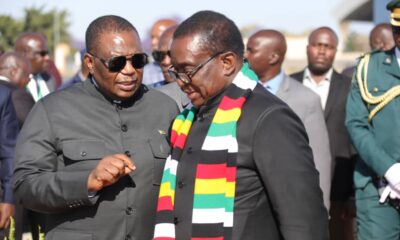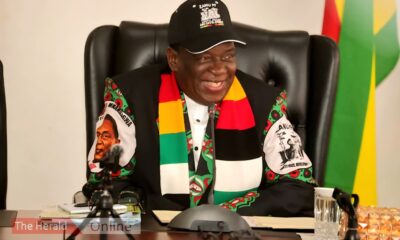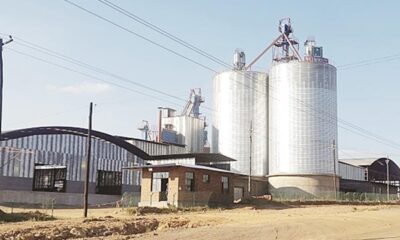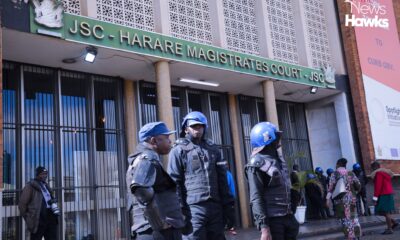By Paidamoyo Muzulu
It is exactly three years since the late former President Robert Mugabe was booted out in a military coup. Many Zimbabweans poured onto the streets celebrating the ouster, the humiliation of a man who had become an institution over 37 years in power. New dawn beckoned.
The military had six days earlier issued a statement marking the coup in slow motion. In the statement, it said Mugabe was safe and it wanted to deal with crooks surrounding him.
The coup did not have only local support, but even some leading countries like Britain, China and the United States supported it in varying degrees. Many were happy to see Mugabe’s back just as many were frustrated when he refused to resign.
Even the opposition in its many facets supported the military usurpation of power. The MDC Alliance co-sponsored the impeachment motion in Parliament. In haste, all parliamentary procedures were dispensed with and Parliament wanted Mugabe out at all costs.
The military had used the slogan — Operation Restore Legacy – to justify its intervention. Even the High Court in an ex-parte application ruled the military action was constitutional. The coup was executed nearly smoothly with minimum bloodshed, but few are aware it was because Mugabe had personally decided against fighting back and plunging the nation into chaos. Mugabe had people who were ready to die for him and possibly South Africa could have intervened militarily on his side.
What was Mugabe’s legacy? He played a big role in bringing independence. Mugabe had brought education and health for all. In his twilight years, he had led the land resettlement revolution and in Sadc, Mugabe had helped South Africa secure independence, kept Renamo’s Afonso Dhlakama at bay in Mozambique and protected the Democratic Republic of Congo’s territorial integrity.
Mugabe had also the legacy of having wanted to entrench a one-party State system, overstaying in power and being soft on corruption. This is a legacy I guess Mugabe was not happy to be associated with, but all the same part of his legacy during the 37-year uninterrupted reign. In Zanu PF he had become a deity, no one dared challenge him openly. Senior party leaders competed to endorse him at every congress – it was nauseating.
After three years, it is becoming clear which legacy the military restored. It restored a legacy of entrenching one-party State rule, being soft on corruption and creating another deity in Zanu PF. President Emmerson Mnangagwa has tinkered with the Constitution to entrench his rule, has changed the appointment procedure of heads of the Judiciary. He has housed the anti-corruption fight in his office, but his three years in power have shown where the corruption is. He has mixed with shady characters, had his ministers embroiled in multi-million-dollar tender scandals.
On the other hand, Mnangagwa is decimating Mugabe’s legacy on education, health and the land revolution. It is a fact that Mugabe during his reign and particularly the first two decades each year set aside large chunks of the national budget for education and health. He expanded access to these two social services and in the process winning accolades from United Nations agencies such as Unesco and World Health Organisation and United Nations Population Fund, among others.
Mugabe, despite his British mannerisms, was a socialist at heart. Education and health were close to his heart and he strived to deliver to the majority of the people. Mugabe believed what he termed scientific socialism and delivered the land to his people albeit in a chaotic manner.
Mnangagwa is an antithesis to that. Mnangagwa has over the last three years preaching the gospel of the Bretton Woods institutions – the International Monetary Fund and World Bank – of privatisation and supremacy of free-market economics.
Privatisation and free-market economics religion have Finance minister Mthuli Ncube as its local bishop. He has preached the gospel with verve, hysterical passion and the belief of a saint. Over the last three years, he has worked hard on the privatisation of education and health. His budget allocations have been far below the acceptable international standards such as the Abuja declaration that says health should be allocated 15% of the national budget.
The COVID-19 pandemic has exposed the wicked plan to privatise education and health. As the public schools’ teachers are on strike for better remuneration and working conditions, private schools are busy teaching and writing Cambridge examinations. On the health side, COVID-19 tests are mainly being done by private institutions. Some players like Sakunda – Kuda Tagwireyi — immediately invested into the sector buying two hospitals and is smiling all the way to the bank.
Teachers and nurses have unintentionally abated the fast-tracking of the privatisation of social services by Mnangagwa and Ncube. Slowly, but certainly, citizens are losing faith in the public services, thereby buttressing the call for privatisation of the same. Mnangagwa is having it easy as both the opposition and civil society also worship at the altar of capital.
As the country looks back to Mugabe’s capitulation, Operation Restore Legacy is being laid bare as a ruse. The legacy that was being sought was the change of animals at the feeding trough, the poor should die and forget about education — their station as hewers of wood and drawers of water has been cemented under the new dispensation. A dream of November 2017 has been deferred.
This article was first published in the latest Zimbabwe Briefing, a monthly report compiled by the Crisis in Zimbabwe Coalition





















